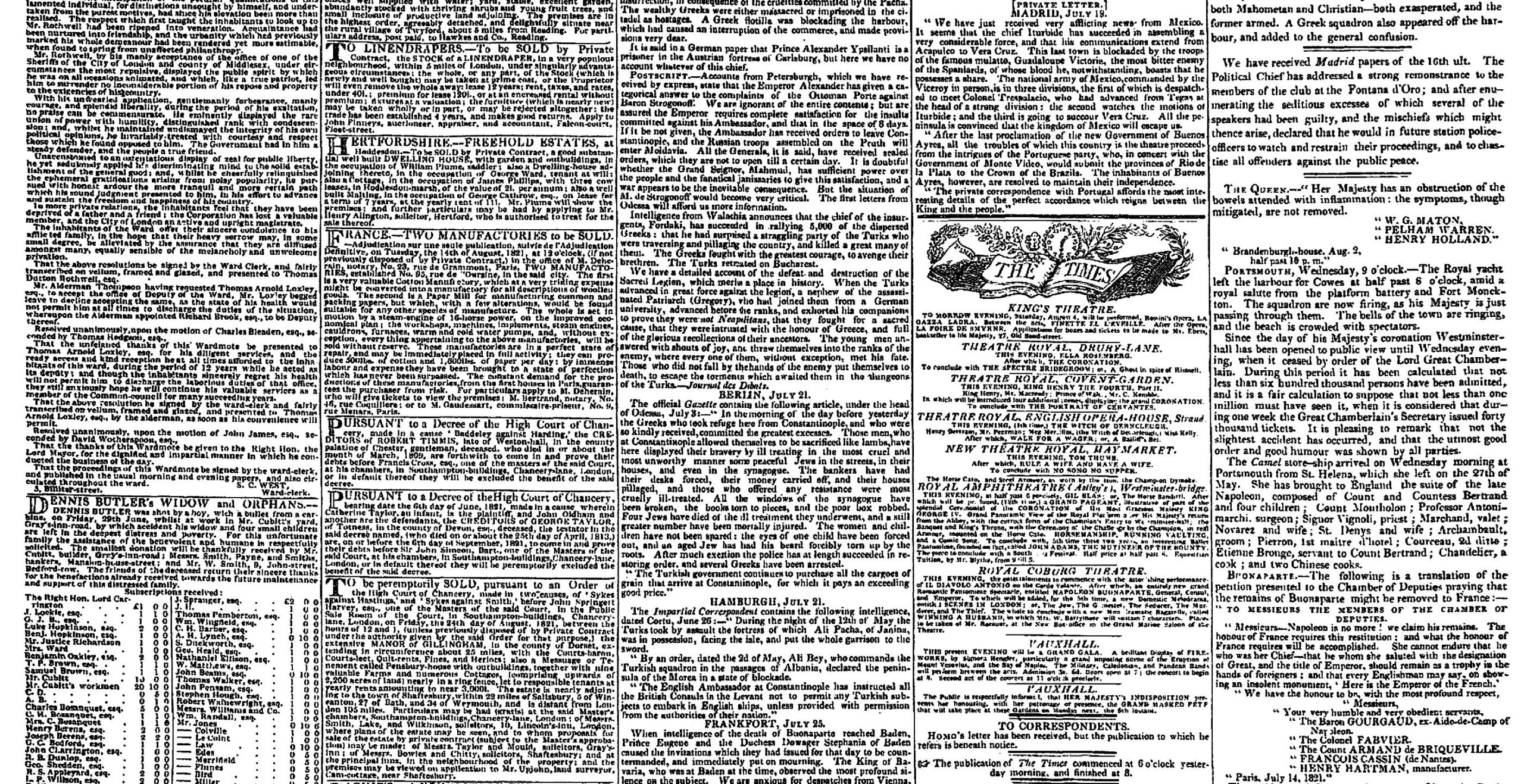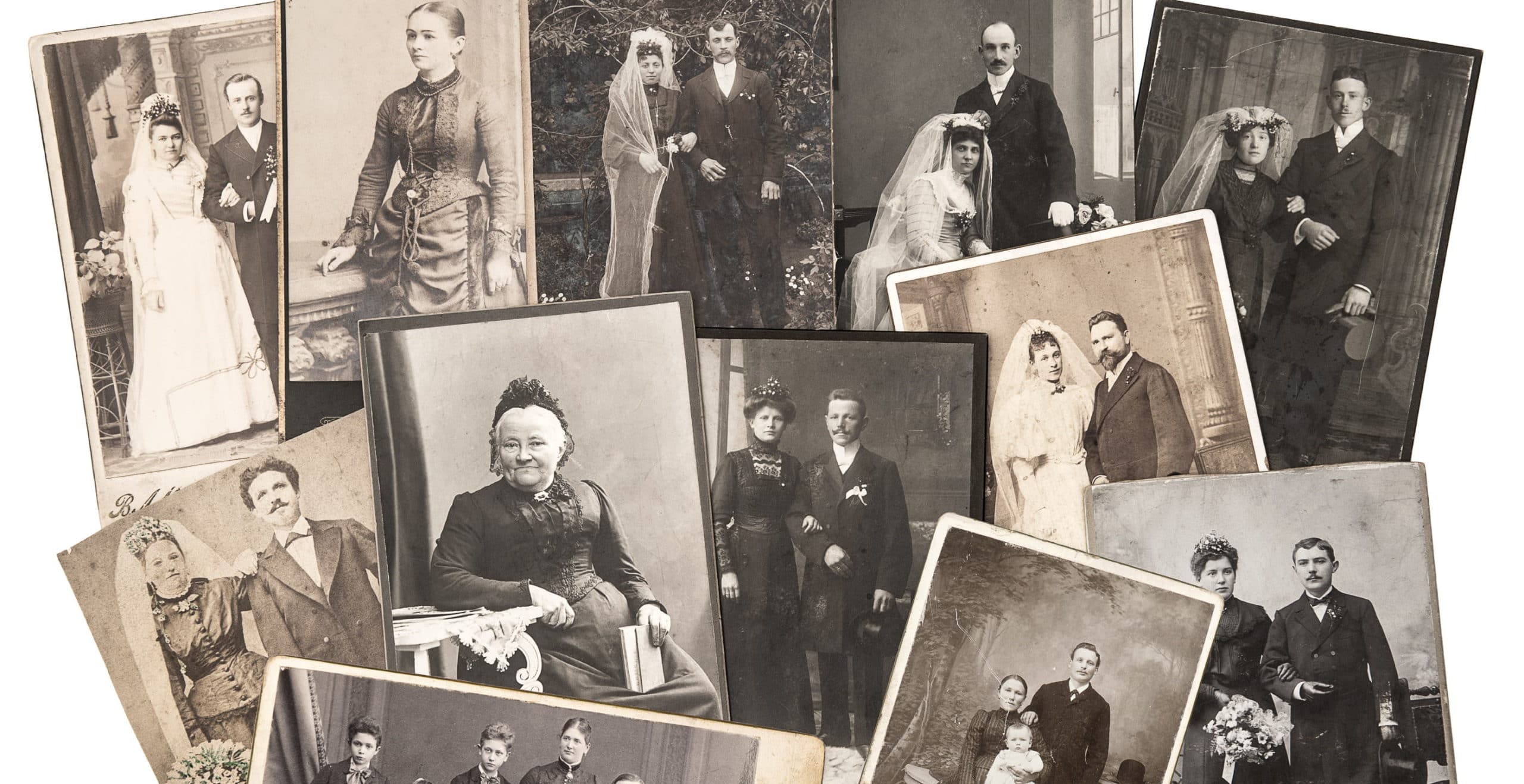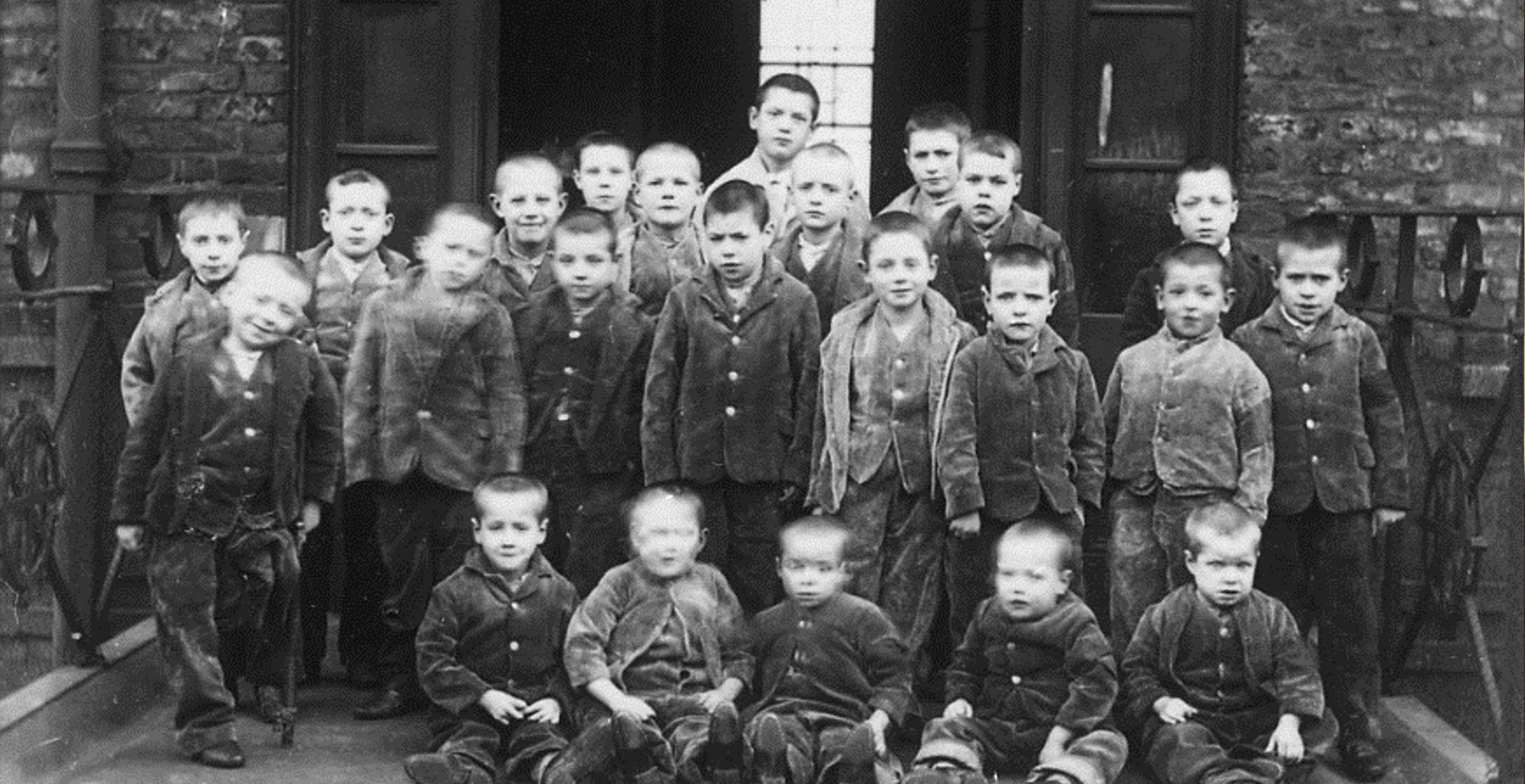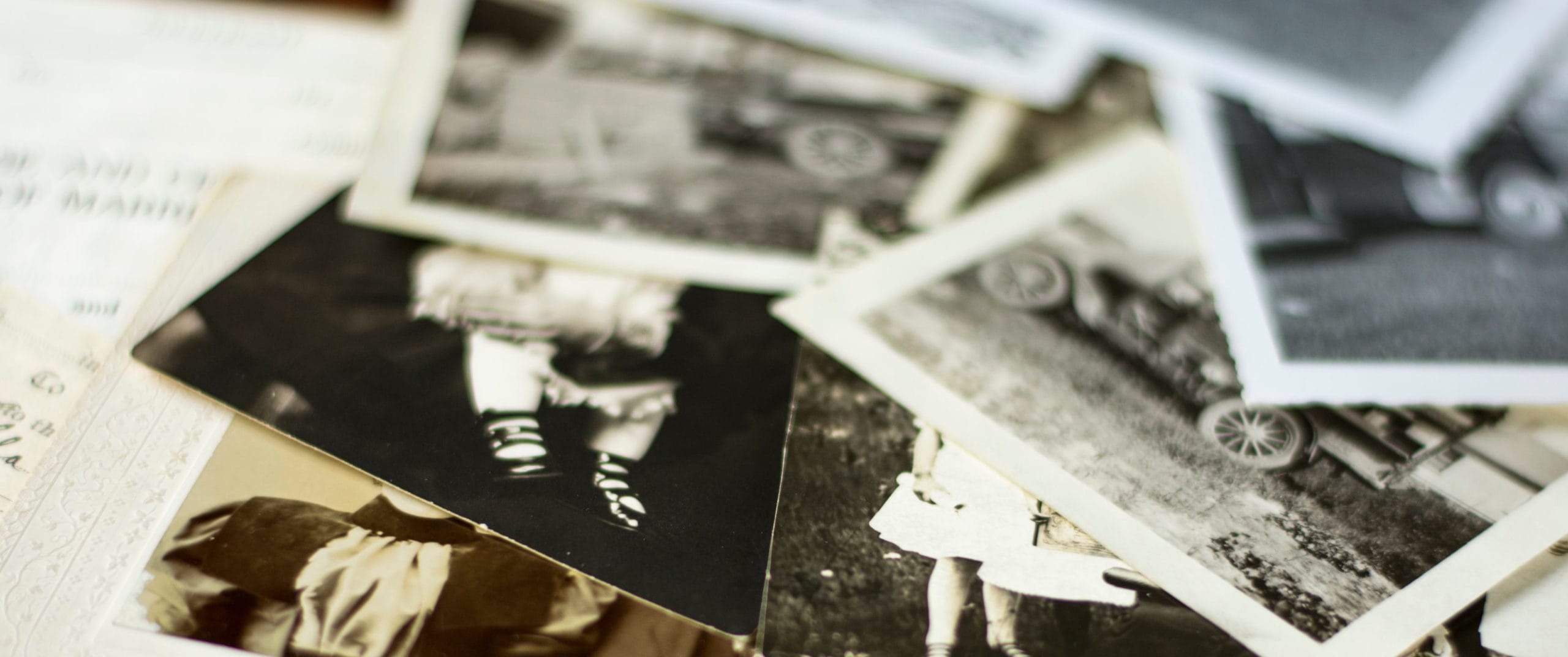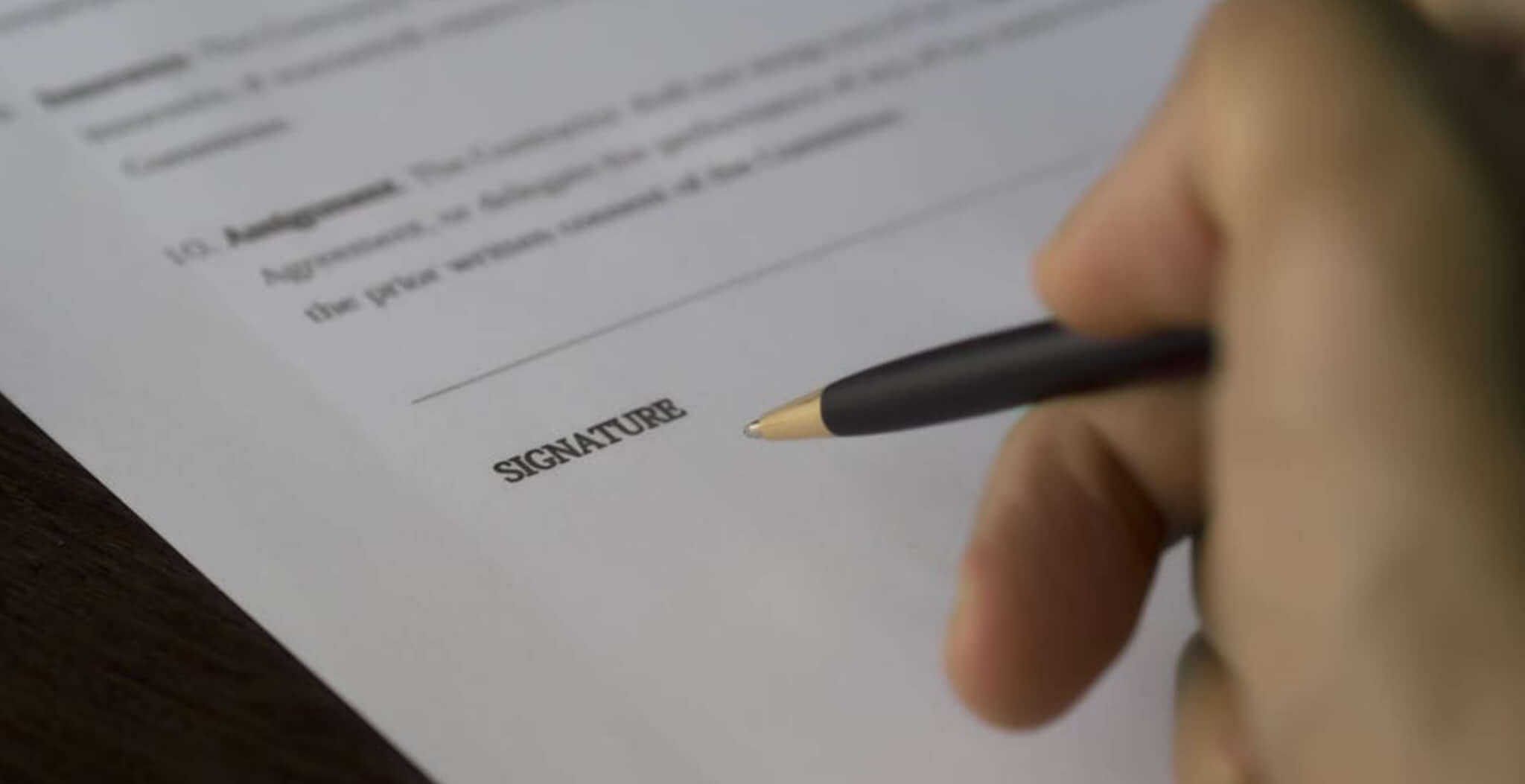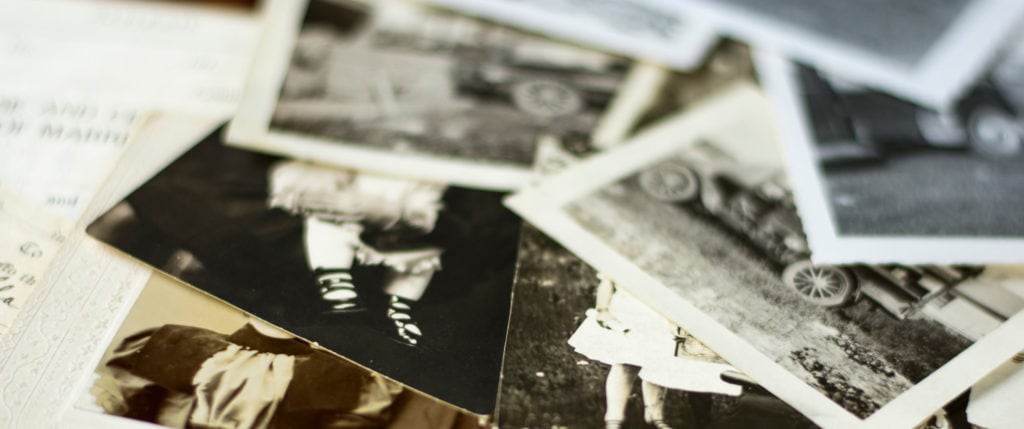When tracing your family history, newspaper archives can be very useful – but be warned, this type of research can be addictive!
Search online through newspaper archives to find out more about your ancestors. Newspapers not only include information on births, marriages and deaths but also include court cases, incidents and other newsworthy events, and may often include photographs or illustrations.
The family history site MyHeritage features mostly American newspapers and publications. Ancestry features a relatively small selection of newspapers. FindMyPast allows you to search a wider range of newspapers however this search is not available if you are on the free trial.
The British Newspaper Archives website is easy to use and offers a very wide range of newspapers to search. The Archive works with publishers and the British Library. From 1869 it was required that newspapers should supply a copy of each of their editions to the British Library, however for some publications the Archive goes back further, with new titles being added all the time.
After registering with The British Newspaper Archives, you receive three free page views. Then options are monthly, three monthly or annual subscriptions, or a one-off pay-as-you-go option for £19.95, limited to 40 pages.
It is especially rewarding to use The Newspaper Archive in conjunction with one of the family history sites such as Ancestry, FindMyPast or UKCensusOnline. The censuses are particularity helpful as these give not only names, occupations etc but also addresses.
Another big ‘plus’ for researching using newspaper archives is that, unlike the censuses which, apart from the 1939 data, stop at 1911, some of the newspaper archives start in the 1700s and continue on to 2009!
So what can you find out from the British Newspaper Archives ?
As well as covering important national and international events, newspapers offer a wealth of information for the family researcher. Local newspapers especially are full of great stories about local people and local events, and through their advertisements, family announcements etc. open the window to life at that time. If an ancestor features in the press, there is sometimes a photograph but more importantly, there is often a lot of personal information, even occasionally quotes from the person themselves, all of which add flesh to the name on the family tree.
The home page of the British Newspaper Archive website allows you to search by date, name or place. When you enter a location, perhaps the birthplace of an ancestor or the place they lived, a list of local newspapers comes up. By entering the exact address of an ancestor, perhaps taken from a census entry, the results will then show stories in the newspapers relating to that specific address. Entering a name or address within quotes (“) will help refine the results. The advanced search allows you to further refine your search.
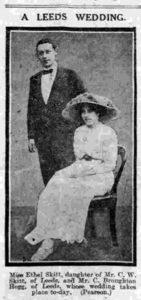 Leeds Mercury, 26th September 1913. Image © The British Library Board.
Leeds Mercury, 26th September 1913. Image © The British Library Board.
Births, Marriages and Deaths. These entries often appear in the personal sections of newspapers. Marriages and milestone wedding anniversary entries often include photographs and details such as names of relatives and even addresses which can be of great help to researchers looking for the wider family.
The image below, from the Leeds Mercury newspaper, gives not only the current occupation of the groom (Dept. Chief Constable of Leeds) but also the maiden name of his wife, the names of their fathers and the information that the families came from Oxfordshire, not Leeds as might have been expected.
 Leeds Mercury, 11th June 1903. Image © The British Library Board.
Leeds Mercury, 11th June 1903. Image © The British Library Board.
Advertisements, including those for household servants. These are not only of interest to family history researchers but also to students of social history. Here you will find advertisements for household staff, for nannies, servants, general help, cooks and the like. It is as though opening a window into the past: Downton Abbey and Upstairs Downstairs in real life! Ancestors involved in trade and commerce will also have advertised in the local press and their adverts give us an idea of exactly what kind of trade they pursued.
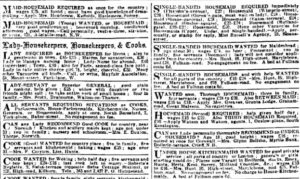 From ‘Situations Vacant’, Morning Post, 29th October 1906. Image © The British Library Board.
From ‘Situations Vacant’, Morning Post, 29th October 1906. Image © The British Library Board.
Trials and Misdemeanors. It is really interesting to compare how crimes and trials were reported in the past, compared to today. Quite often in the past the evidence was reported verbatim, for example with quotes from the police officers, which brings the event to life!
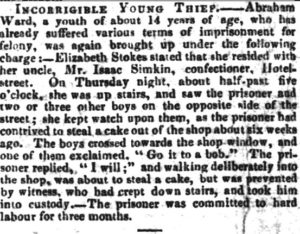 Manchester Courier and Lancashire General Advertiser, 29th December 1838. Image © The British Library Board.
Manchester Courier and Lancashire General Advertiser, 29th December 1838. Image © The British Library Board.
Sometimes rather than a crime, it may be a case of poor relief; often a widow with children would have to apply to the parish for poor relief to help feed, clothe and house her family. This was often a first step before ending up in the workhouse. Not sending your children to school could also lead to you being taken to court and fined.
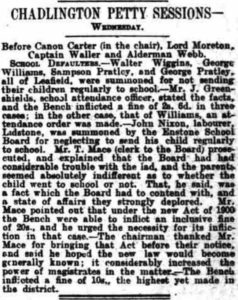 Oxfordshire Weekly News, 6th November 1901. Image © The British Library Board.
Oxfordshire Weekly News, 6th November 1901. Image © The British Library Board.
Prison sentences can seem very harsh to us these days but these details can be very useful: for example, researching someone who disappeared from the censuses for any length of time. Quite often it can be found in the newspaper archives that they were sent to prison or deported, hence the gap in research.
News and Events. Newspapers do not cover just national and international events; local events are also covered in the press. If the story of such an event, involving an ancestor, has been passed down through family lore, it can be very interesting to research whether this did indeed ever happen. For example, one family’s story, passed down through the generations, was that Harry Houdini came to Leeds Town Hall and performed an escape from the same cell in the Bridewell that had held notorious criminal Charlie Peace, which was witnessed by a family member. A search of the newspaper archive proved that this did indeed happen!
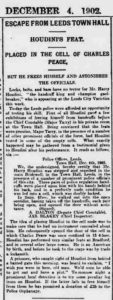 Yorkshire Evening Post, Dec 4th 1902. Image © The British Library Board.
Yorkshire Evening Post, Dec 4th 1902. Image © The British Library Board.
Major events of course are covered in the newspapers. Wars, the 1918 ‘flu pandemic, coronations, abdications, state funerals and much more, are all covered.
Superb resource for students studying the media. The way the reporting of the news in newspapers has changed since Victorian times is quite staggering, not only in the layout and size of print, but also in the content and language used. The use of English has changed considerably; in the past the news was recorded in a very matter-of-fact manner, formal and without embellishment, rather than as it is today, in particluar in some of today’s tabloid press where it is recorded in modern slang, emotive and with the aim to shock or grab attention. From the way vintage newspapers used language, it also appears that Victorian newspapers seemed to assume a good level of literacy in their readership.
For the family historian, there is much to be gained from searching The Newspapers Archives. Much can be learned about the character and lives of past family members from announcements and events covered in the press. They also give us a wonderful window into the past, from the point of view of both history and culture.
However as stated at the beginning of this article, do be prepared: searching the newspaper archives can be very, very addictive!
Published: February 8, 2021.
